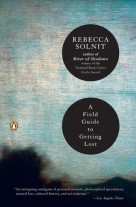Three diverse books about “travel” have made me a thoughtful, happy wanderer on the first leg of my trip through Germany, Italy, Spain and Andorra this European spring.
I’ve been doing a lot of walking (right now I’m in the Andorran Pyrenees) and, as I also want to focus more on my poetry in coming months, Walking Home by UK poet Simon Armitage has been a great companion.
In 2010, Armitage spent 21 days slogging across the Pennine Way giving readings in pubs, front rooms, village halls and churches. He passed around a walking sock to gather the offering from the crowd to fund his trip. The book documents the journey, mixing wisdom and musing with raw reportage, grumbles, lists, poetry and disclosures about the bodily, psychological and emotional challenges he faced.
Here’s a grab I liked from Armitage about Hadrian’s Wall — a quote I coincidentally read while visiting what’s left of the Berlin Wall, which must be one reason it hit home.
“As a declaration of territoriality and power, it [Hadrian’s Wall] takes some beating, but like all such barriers and attempted delineations, be it the Iron Curtain, Offa’s Dyke, the Berlin Wall, or the US-Mexico border, it is in the end a shrine to failure. Holding back or penning in human populations is like trying to fence off the weather, and as much a statement of insecurity as one of power.”
A Field Guide to Getting Lost by Rebecca Solnit delves into some of the same philosophical territory as Armitage but it’s less of an amble, aiming its barbs deeper.
A tale of the Death Valley Forty-Niners, for example, serves to illustrate fully and painfully how lost humans can be when pursuing greed.
Solnit is concerned with disappearing species and landscapes and writes that, in this sense, the cumulative effects of the gold rush were terrible.
“It was this acquisitiveness and its increasingly sophisticated new technologies that came to extract more and more wealth from the wild and remote places of the world to empty them out, filling up banks with more money than could ever be spent, more than there are things to buy. Now the scarcity is real and growing.”
On a totally different tack, I love this grab from her too: “Worry is a way to pretend that you have knowledge or control over what you don’t — and it surprises me, even in myself, how much we prefer ugly scenarios to the pure unknown.”
Questions of Travel by Michelle de Kretser is a dazzling novel in which the lives of two characters, Laura and Ravi, run side by side and finally intertwine. De Kretster’s observations about travel are at turns acute, funny and painfully true.
Here’s a teaser … as I hope to review de Kretser’s novel in a longer post soon:
“Laura had read widely to ready herself for adventure: travellers’ tales, histories, guidebooks. They warned of pickpockets, rabid dogs, unboiled water, children’s eyes in which the incautious might drown. But no one mentioned the sheer tedium of being a tourist. Dreaming of travel, Laura had pictured a swift sideshow of scenes. But oh, the long, blank hours that linked!”




Recent Comments